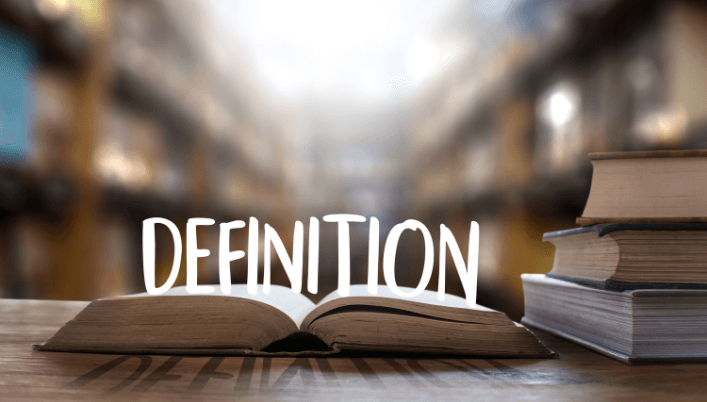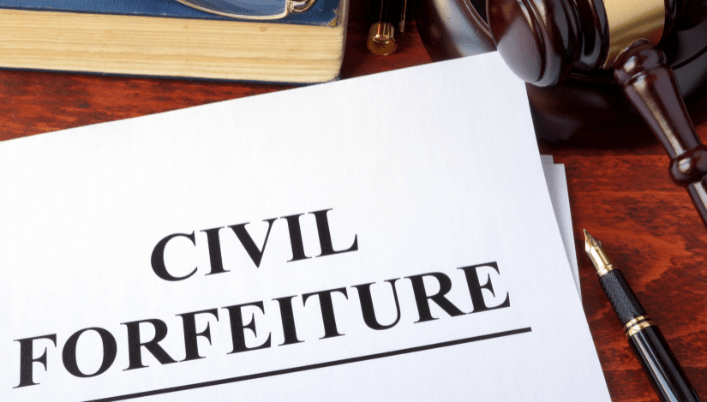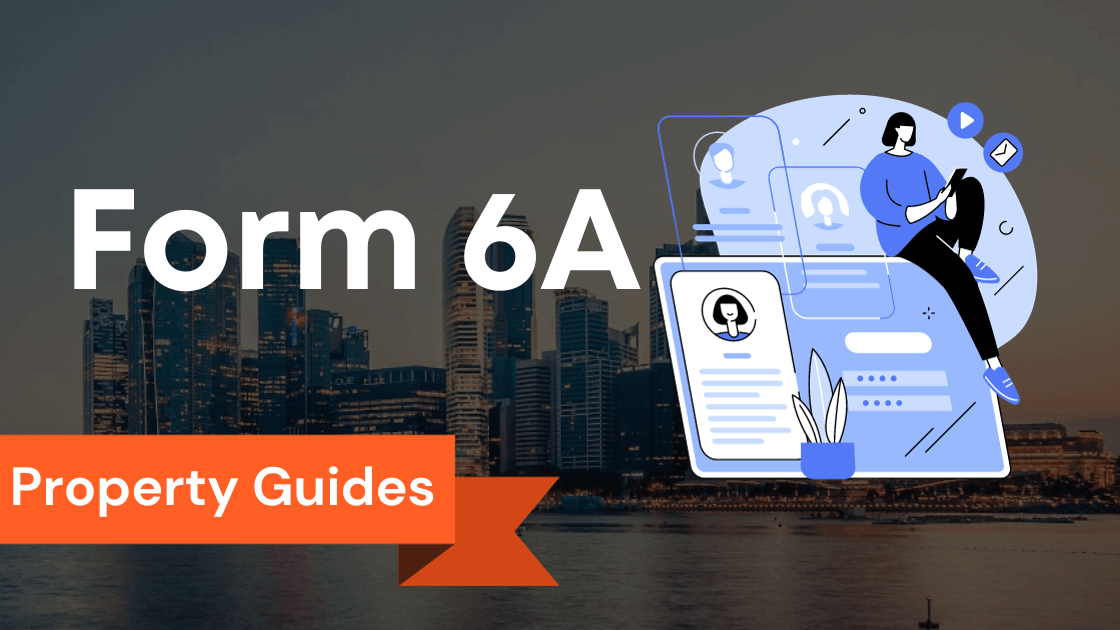Forfeiture: Overview, Definition, and Usage

What is Forfeiture?
Forfeiture is a legal term that refers to the seizure or loss of a right, asset, or property as a result of a criminal or civil offense.
It is a process through which the government can confiscate assets from individuals or organizations involved in illegal activities.
There are two main types of forfeiture: civil forfeiture and criminal forfeiture.
Civil forfeiture allows the government to seize assets that are believed to be involved in or derived from criminal activity, even if the owner is not charged with a crime.
On the other hand, criminal forfeiture occurs after a person has been convicted of a crime, and the court orders the forfeiture of assets that were used or obtained through illegal means.
When is Forfeiture Used?
Law enforcement agencies and government organizations use forfeiture to disrupt criminal activities, dismantle organized crime networks, and remove the profits and instrumentalities of illegal enterprises.
It is commonly used in cases involving drug trafficking, money laundering, fraud, and other serious offenses.
Various government agencies are involved in forfeiture efforts, such as the FBI, DEA, IRS, and Customs and Border Protection.
They work together to investigate and seize assets, which can include cash, real estate, vehicles, luxury items, and financial accounts.
The process of forfeiture usually involves legal proceedings and can be initiated by the government or through an administrative forfeiture action.
It typically requires the presentation of evidence linking the assets to criminal activity, and the owner has the opportunity to contest the forfeiture.
Types of Forfeiture
Different types of forfeiture proceedings can result in the loss of assets.
Monetary forfeiture involves the payment of a fine or penalty as a result of a criminal offense.
Consequent forfeiture is the loss of property that was used to commit a crime or obtained through illegal means.
Judicial forfeiture is a court-ordered seizure of assets as part of a criminal case.
Civil asset forfeiture is a controversial practice that allows the government to seize assets without a criminal conviction.
Law enforcement agencies often use the funds obtained through asset forfeitures to support their operations and community initiatives.
https://www.youtube.com/watch?v=zlaIMPrwJmg
In conclusion, forfeiture is a legal tool used by the government to combat illegal activities and confiscate the proceeds of crime.
It plays a crucial role in law enforcement efforts to remove the incentives for criminal behavior and disrupt organized crime networks.
Key Takeaways
- Definition of Forfeiture: Forfeiture refers to the legal process of seizing or losing the right, asset, or property due to criminal or civil offenses. It can be civil or criminal in nature.
- Purpose of Forfeiture: Forfeiture is used by law enforcement to disrupt criminal activities, dismantle organized crime networks, and remove the profits from illegal enterprises, commonly in cases involving drug trafficking, money laundering, fraud, and serious offenses.
- Types of Forfeiture: Different types of forfeiture include monetary forfeiture (fines), consequent forfeiture (loss of property used in a crime), and judicial forfeiture (court-ordered seizure).
- Civil Asset Forfeiture: This controversial practice allows the government to seize assets without a criminal conviction, often using funds to support law enforcement operations.
- Forfeiture in Singapore Law: Forfeiture in Singapore can apply to both property and money and may result from various factors, including non-payment of rent, breach of lease, or court orders.
- Other Types of Forfeiture: Forfeiture can also involve assets like shares and property inherited from a deceased spouse upon remarriage.
- Forfeiture in Practice Areas: Forfeiture is applied differently in criminal law, civil law, and family law, serving various purposes in each context.
- Avoiding Forfeiture: To avoid forfeiture, understand contractual obligations, take prompt action to rectify breaches, and explore alternative debt recovery options.
- Challenging Forfeiture: If facing forfeiture, understand your rights, file objections with strong evidence, and consider the appropriate jurisdiction for your case.
- Recovering Forfeited Assets: Recovering forfeited assets involves understanding the legal framework, gathering relevant documents, engaging with authorities, and following prescribed procedures.
- Preventing Forfeiture: To prevent forfeiture, know your rights, seek legal advice, comply with contractual obligations, and consider relief options in case of contract breaches.
Forfeiture in Singapore Law

Forfeiture of Property
When it comes to the legal framework in Singapore, forfeiture of property refers to the loss of ownership or possession of property.
This can occur due to various reasons, such as the non-payment of rent or mortgage, perform, breach of lease obligations, or court orders following a criminal conviction.
Forfeiture proceedings may be initiated by the owner or by the court.
In forfeiture proceedings, the court has the power to order the forfeiture of the property, transferring its ownership to the government or another party.
However, it is essential to note that the owner has the right to raise objections to forfeiture, providing a chance to argue against the loss of the property.
Forfeiture of Money
Similar to the forfeiture of property, the forfeiture of money involves the loss of monetary assets.
In cases such as money laundering or illegal activities, the authorities may seize and forfeit the money as a penalty.
Law enforcement agencies may bring forth forfeiture proceedings, and the forfeited cash may be used for public purposes or returned to victims.
It is vital to understand the implications of forfeiture, especially when it comes to mortgage terms.
In the event of a default on a mortgage loan, the lender may have the right to initiate forfeiture proceedings and repossess the collateral (usually property).
This is done to mitigate the financial risk and recover the outstanding loan amount.
Other Types of Forfeiture
Aside from property and money, forfeiture can also apply to various other assets.
Share forfeitures, for example, occur when a shareholder fails to meet their obligations, resulting in the loss of their shares.
Penalty on remarriage may apply in cases where the widow or widower forfeits the property inherited from their deceased spouse upon remarriage.
https://www.youtube.com/watch?v=Df9YRX25Eyo
It is important to note that the examples provided here do not represent an exhaustive list.
The meaning of forfeiture can vary depending on the specific legal context and circumstances.
It is recommended to seek legal advice or consult relevant legislation to understand forfeiture laws and proceedings fully.
Forfeiture in Different Practice Areas

Criminal Law
Forfeiture is a legal process in which the government takes possession of assets that have been obtained through criminal activity or used to facilitate the commission of a crime.
In criminal law, forfeiture can be imposed as a penalty for certain offenses or as a statutory requirement for specific crimes.
The purpose of forfeiture is to deprive criminals of the profits or proceeds they have gained from their illegal activities.
The procedure for forfeiture varies depending on the jurisdiction and the nature of the offense.
Generally, the government has the burden of proving that the assets are connected to the crime beyond a reasonable doubt.
If the court determines that the investments are subject to forfeiture, they can be sold or used by the government for law enforcement purposes.
Civil Law
In civil law, forfeiture can occur in various contexts, such as lease agreements or contractual obligations.
For example, in landlord-tenant disputes, if a tenant fails to fulfill their legal obligations, such as paying rent or maintaining the property, the landlord may have the right to forfeit the lease and regain possession of the property.
Relief from forfeiture is a legal concept that allows parties to seek a court’s intervention to avoid the loss of their rights or assets.
This can be applicable in situations where the forfeiture would be disproportionate or unjust.
Civil asset forfeiture is another aspect of civil law where the government can seize assets believed to be connected to illegal activities without a criminal conviction.
Family Law
In family law, forfeiture can arise in cases involving the loss of rights, duties, or property based on certain legal obligations.
For example, if a parent fails to fulfill their duties or obligations towards their child, the court may order the forfeiture of visitation rights or other parental privileges.
Additionally, in divorce proceedings, the distribution of marital assets may include forfeiture of certain assets or property based on legal considerations.
Forfeiture of recess is another concept in family law where a party may lose their right to take a break during a trial or hearing due to misconduct or violation of court rules.
Overall, forfeiture plays a significant role in various practice areas of the law, aiming to enforce penalties, protect rights, and maintain justice.
Practical Considerations for Forfeiture

How to Avoid Forfeiture
When it comes to legal proceedings related to forfeiture in Singapore, it is essential to understand how to navigate the potential risks and protect your assets.
Here are some practical considerations to help you avoid penalty:
- Know your contractual obligations: Make sure you are familiar with your legal duties and responsibilities outlined in your contracts or agreements. Failure to comply with these obligations may lead to forfeiture proceedings.
- Take prompt action: If you believe there may be a risk of forfeiture, it is crucial to take proactive steps to rectify any breaches or defaults. Prompt action can help you avoid unnecessary legal complications.
- Explore alternative debt recovery procedures: In some cases, it may be possible to negotiate an alternative solution for debt recovery instead of resorting to forfeiture. Consult with legal experts to explore different options.
How to Challenge Forfeiture
If you find yourself facing forfeiture proceedings in Singapore, you have the right to challenge the forfeiture.
Here are a few considerations:
- Understand your legal and contractual rights: Familiarize yourself with the legal and contractual framework governing forfeitures. This will help you determine the grounds on which you can challenge the forfeiture.
- File objections: Present strong objections backed by solid evidence to challenge the forfeiture. Consult with legal professionals who specialize in forfeiture cases for guidance and support.
- Consider jurisdiction: Determine the appropriate jurisdiction where you can challenge the forfeiture. Consulting with legal experts will help you understand the best course of action for your specific case.
What to Do if Your Property is Forfeited
If your property has been forfeited in Singapore, it is essential to know what steps to take:
- Seek legal advice: Consult with a lawyer experienced in forfeiture proceedings to understand your options and potential remedies.
- Review the reasons for forfeiture: Analyze the grounds on which your property was forfeited and evaluate if there are any legal avenues to challenge the decision.
- Consider Share forfeitures: If your property was forfeited due to a breach of a shareholder agreement, explore the possibility of Share forfeitures as a way to recover or protect your interests.
Remember, navigating forfeiture proceedings requires legal expertise and careful consideration of your specific circumstances.
Always consult with professionals to ensure you make informed decisions.
Practical Guide to Forfeiture

How to Deal with Forfeiture Proceedings
When it comes to forfeiture proceedings in Singapore, it is important to understand the legal implications and your rights as a business owner.
Forfeiture may occur if there is a failure to comply with statutory obligations or if there is evidence of unlawful activity.
To effectively deal with forfeiture proceedings, consider the following steps:
- Seek legal advice: The first and most crucial step is to consult with a lawyer who specializes in forfeiture cases. They can guide you through the legal process and help protect your rights.
- Respond to the forfeiture notice: If you receive a notice of forfeiture, it is crucial to respond within the specified timeframe. Failure to do so may result in the automatic forfeiture of assets.
- Understand the enforcement process: Familiarize yourself with the administrative forfeiture action and the procedure for forfeiture. This will ensure that you are aware of your rights and obligations throughout the process.
- Explore options for payment: If you are unable to pay the monetary sum for the forfeiture, discuss the possibility of an installment plan or alternative payment arrangements with the relevant authorities.
How to Recover Forfeited Assets
Recovering forfeited assets can be a complex process, but it is not impossible.
Here are some steps to consider:
- Understand the legal framework: Familiarize yourself with the laws and regulations surrounding asset forfeiture. This will enable you to navigate the process effectively.
- Gather necessary documents: Collect all relevant documents, such as receipts, invoices, and records of ownership, to support your claim for asset recovery.
- Engage with the involved agencies: Communicate with the authorities responsible for the forfeiture to present your case and provide any additional evidence or explanations.
- Follow the procedure for asset recovery: Adhere to the prescribed guidelines for asset recovery, such as submitting a request for the return of assets and attending any hearings or meetings as required.
How to Avoid Forfeiture
To avoid forfeiture proceedings, it is essential to understand your legal obligations and fulfill them accordingly.
Here are some tips:
- Know your rights: Familiarize yourself with your legal rights to avoid any misunderstandings or potential breaches that could lead to forfeiture.
- Seek legal advice: Consult with a lawyer to ensure that your contracts and agreements are drafted in a way that minimizes the risk of forfeiture.
- Comply with contractual obligations: Fulfill all contractual commitments, such as making timely payments, providing necessary documentation, or meeting performance benchmarks.
- Consider relief from forfeiture: If you are faced with forfeiture due to a breach of contract, explore options for relief from forfeiture. This may involve negotiating with the other party or seeking legal remedies.
Remember, forfeiture proceedings can have severe consequences for your business.
By understanding the process, seeking legal advice when needed, and fulfilling your obligations, you can navigate forfeiture proceedings effectively.
Conclusion
Forfeiture Singapore Conclusion
In conclusion, forfeiture in Singapore is a legal process that involves the seizure and permanent loss of assets by the government or law enforcement agencies.
The definition and usage of the word “forfeiture” may vary, but it generally refers to the act of giving up something as a penalty or consequence.
While the examples provided in the Cambridge Dictionary may not represent the opinion of the Parliament or the editors of the dictionary, they do provide insight into how the term “forfeiture” can be used in different contexts.
In Singapore, forfeiture can occur in various situations, including criminal prosecutions, where the court may order the confiscation of assets that were obtained through illegal activities such as money laundering or drug trafficking.
Forfeiture can also be applied in civil cases, where help may be seized as a result of breaching contractual obligations or conditions.
It is important to note that forfeiture should not be confused with waiver, which involves voluntarily giving up a right or claim.
Forfeiture is typically imposed as a punishment or deterrent, whereas waiver is a conscious decision to relinquish ownership.
The use of forfeiture is not limited to Singapore.
In the United States, for example, the Racketeer Influenced and Corrupt Organizations (RICO) Act provides for the forfeiture of assets associated with organized criminal activities.
The concept of forfeiture is also recognized in common law jurisdictions, including England, where it can be used to enforce covenants or restrict certain actions.
While forfeiture serves as a powerful tool to deter misconduct and ensure compliance with the law, there are concerns about potential abuse or misuse.
The legal system must have safeguards in place to prevent wrongful forfeitures and protect the rights of individuals.
In conclusion, forfeiture in Singapore is a complex legal process that aims to deter and punish criminal conduct, as well as enforce contractual obligations.
Individuals and businesses need to understand the implications of forfeiture and seek legal advice if they are involved in such proceedings.
Please note that this conclusion is a summary of the information provided and should not be construed as legal advice.
If you require specific information or guidance regarding forfeiture in Singapore, it is recommended to consult with a legal professional.
Frequently Asked Questions
What is forfeiture?
Forfeiture is the act of losing possession or control of something, typically as a consequence of a legal action or punishment.
How is forfeiture defined in legal terms?
In legal terms, forfeiture is the seizure of property without compensation, usually as a punishment for a crime or violation of a law.
Can you provide an overview of forfeiture?
Forfeiture is a legal process where the government takes possession of property that has been involved in certain illegal activities or used in connection with criminal acts.
It is often used as a tool to deter criminal behavior and disrupt illegal activities.
What is the source of the definition of forfeiture?
The definition of forfeiture is derived from the Cambridge Law Dictionary, which is a reliable source for legal terminology and definitions.
Why is forfeiture considered a legal action?
Forfeiture is considered a legal action because it involves the government exercising its legal authority to seize property in accordance with the law.
It is a result of a legal process that determines the forfeiture of the property.
Can you provide a practical example of forfeiture?
Sure! Let’s say that a person is convicted of drug trafficking.
As part of their punishment, the court may order the forfeiture of their assets, including any money or property obtained through illegal activities.
What is the role of a dictionary in understanding forfeiture?
A dictionary, such as the Cambridge Dictionary, can provide a clear and concise definition of forfeiture, helping individuals understand the legal and practical implications of the term.
How can I browse related content regarding forfeiture?
You can browse related content regarding forfeiture by searching for articles, legal cases, or academic papers that discuss the topic.
Legal databases and academic journals are good sources of information on forfeiture.
Is there a synonym for forfeiture?
A synonym for forfeiture is “confiscation.
” Both terms refer to the act of losing possession of property due to a legal action or punishment.
How is the word "forfeiture" commonly used?
The word “forfeiture” is commonly used in legal and formal contexts when referring to the loss of property or possessions as a result of a legal action or penalty.












